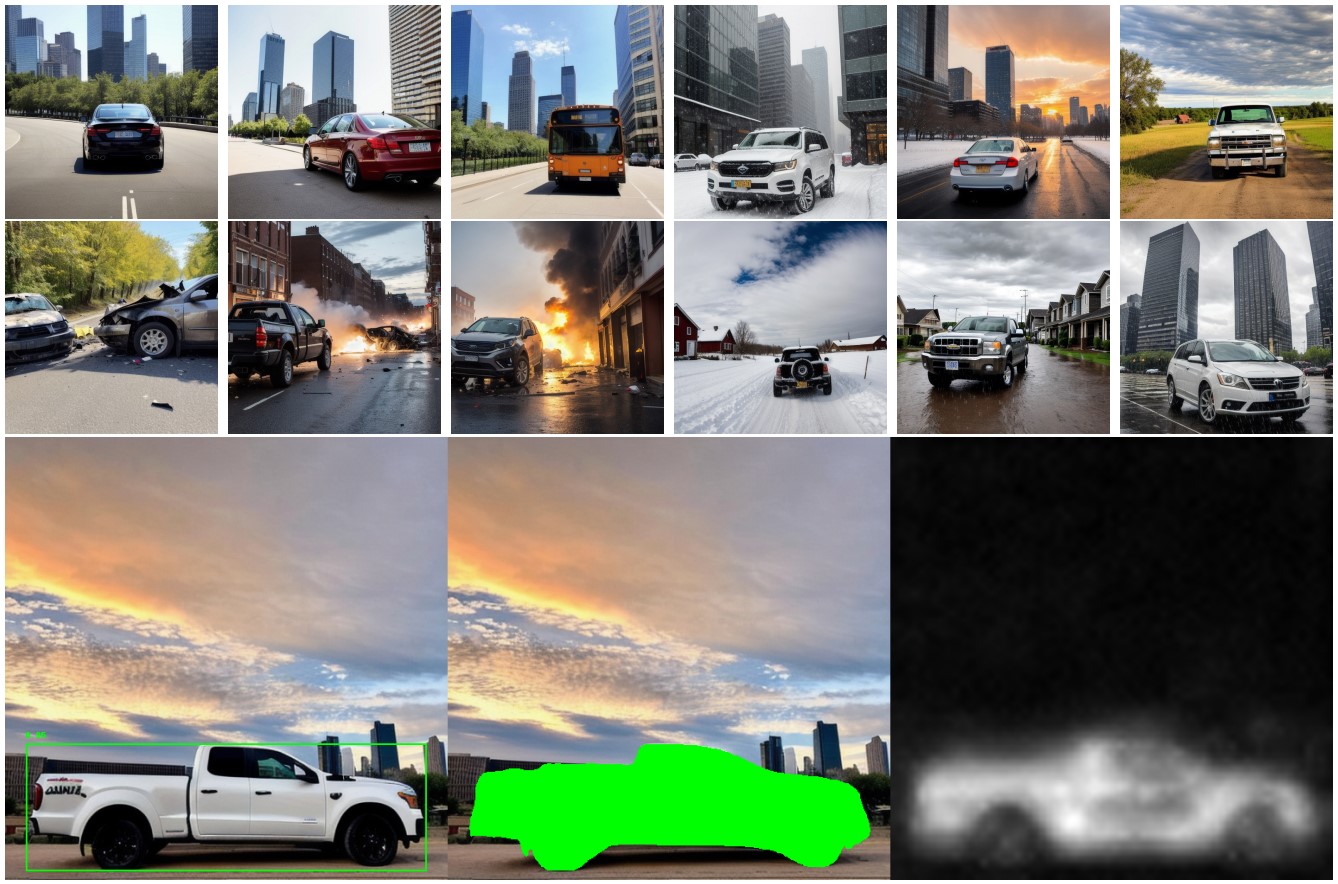To address challenges associated with dataset generation, we introduce "DiffuGen," a simple and adaptable approach that harnesses the power of stable diffusion models to create labeled image datasets efficiently. By leveraging stable diffusion models, our approach not only ensures the quality of generated datasets but also provides a versatile solution for label generation. The methodology behind DiffuGen, combines the capabilities of diffusion models with two distinct labeling techniques: unsupervised and supervised. Distinctively, DiffuGen employs prompt templating for adaptable image generation and textual inversion to enhance diffusion model capabilities.
DiffuGen provides a robust framework that integrates pre-trained stable diffusion models, the versatility of prompt templating, and a range of diffusion tasks. By using an input configuration JSON, users can specify parameters to generate image datasets using three primary stable diffusion tasks. Each of these tasks not only benefits from the prompt templating mechanism, ensuring adaptability and richness, but also comes with its dedicated integral labeling pipeline. This design allows DiffuGen to provide both supervised and unsupervised labeling methods tailored to the specific needs of each task, ensuring a well-aligned and efficient labeling process for diverse application needs.
git clone https://github.com/mshenoda/diffugen.git
cd diffugen
conda create -n diffugen python=3.11
conda activate diffugen
pip3 install torch torchvision --index-url https://download.pytorch.org/whl/cu118
pip3 install -r requirements.txt
LabelDiffusion is the core module of DiffuGen that provides labeling pipelines
├───datasets # contains datasets configuration files
├───generate # contain methods to generate dataset per pipeline
│ ├───txt2img.py # Generates text-to-image dataset, uses LabelDiffusion
│ ├───img2img.py # Generates image-to-image dataset, uses LabelDiffusionImg2Img
│ └───inpaint.py # Generates inpainting dataset, uses LabelDiffusionInpaint
├───models
│ ├───sd
│ │ └───embeddings # textual inversion embeddings
│ └───seg # segmentation models, currently YOLOv8-Seg
└───generate.py # main python script to generates any of the txt2img, img2img, inpaint
python generate.py txt2img datasets\cars.json
python generate.py img2img datasets\cars.json
python generate.py inpaint datasets\cars.json
Please follow the guide by huggingface: https://huggingface.co/docs/diffusers/training/text_inversion
If you find DiffuGen useful for your research, please cite:
@inproceedings{diffugen,
title = {DiffuGen: Adaptable Approach for Generating Labeled Image Datasets using Stable Diffusion Models},
author = {Shenoda, Michael and Kim, Edward}
year = {2023}
}

